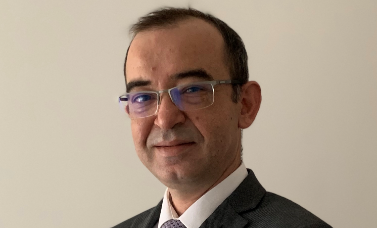
Considering Turkey’s place in the global value chain, what are the advantages/ disadvantages of Turkey and our industry?
As the Turkish White Goods industry, we are biggest production center in Europe and the second biggest in the world after China.
Our sector has a competitive and strong structure with its production processes based on advanced technology, its advanced R&D organization and qualified labor force, and its strong suppliers indstry that produce innovative and eco-friendly products, thus reducing foreign dependency.
The companies in our sector perform an export-oriented production besides having a solid domestic market. Our biggest advantage is being close to our main export market Europe.
Moreover, the major advantages of our sector include flexibility, using agile methods and being capable of rapid adaptation to changing, uncertain and complex structure that we call the “VUCA World” as well as innovations and regulations.
The positive performance of our suppliers in the operation creates a big opportunity for being a global supplier. Regarding, we will continue striving to increase exports from Turkey in the upcoming term. When we offer competitive prices and high quality products/ shipping performance, our suppliers will have a chance to get global BSH orders.
In areas with high added value and which need an advanced import technology and where product research and development operations are limited in our country for now, BSH Home Appliances support new investments and projects.
Our main export market Europe has a high satiation for white goods and an alredy high elderly population, which might bring a disadvantage of market shrinkage over time. Also, our foreign dependancy on many raw materials and component supply that we use in our products is a disadvantage.
For taking actions to use the opportunities and to take measures against risks, what should be done on the level of country, industry and companies?
Fractures in the supply chain during the pandemic revealed the importance of supplying from close proximity. Therefore, it became more significant to localize many parts that were imported. European producers steered towards alternative supply sources from their nearby geography rather than procuring materials from the Far East. At this time, the Turkish suppliers industry is able to stand out with its strong and flexible structure and to create new opportunities. At this point, I think it is important to focus on increasing efficiency, digitalization, creating a competitive structure and sustainability.
What are your expectations of your suppliers to adapt to such changes?
Our suppliers need to be ready for today’s world, the new “normal,” where variability, uncertainty and complexity are heightened and to strengthen their structure to be able to apply flexible and agile working methods. They need to work on their ability to create versatile solutions to possible issues that can be faced. Especially considering our country’s current conditions, financial risks need to be managed in the right manner.
Because of the new energy regulations imposed on the white goods sector as well as the carbon tax due to the EU’s Green Deal that requires commercial partners to reduce their emissions, our suppliers need to take actions to focus on sustainable development, to reduce energy and water consumption and to decrease their waste levels.
What do you think BEYSAD should do in this period? Do you propose any ideas for events and activities?
BEYSAD forming a bridge between the white goods producers and suppliers via its activities plays a leading and guiding role in helping suppliers to adapt to changes in the sector and changing conditions. Its activities regarding the Industry 4.0 and digitalization are good examples for that.
In the upcoming period, I think BEYSAD’s agenda should include sharing experiences on the impacts of Covid-19 and the actions taken as well as the new energy regulations and the EU Green Deal, which interest the future of our sector.







